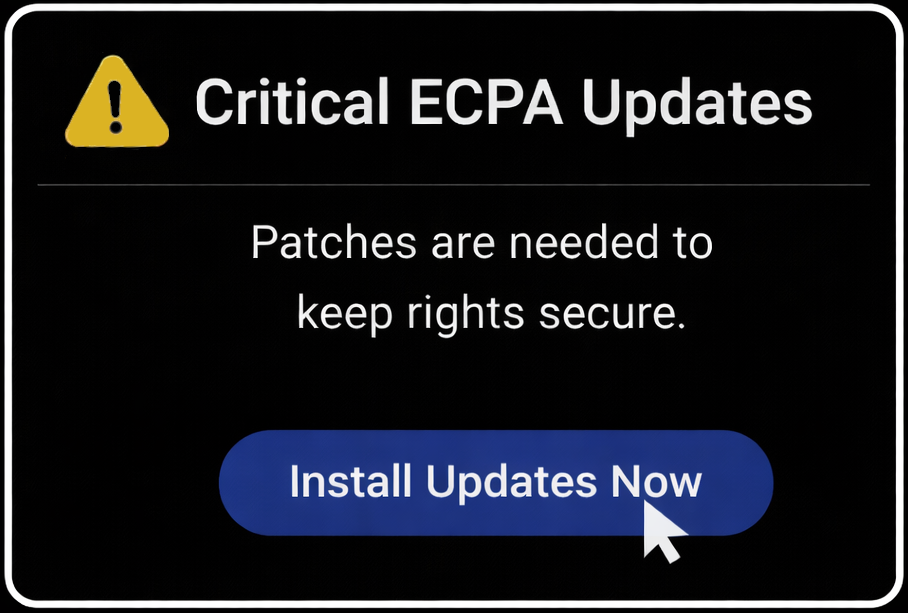The Week That Was: All of Lawfare in One Post

Scott R. Anderson, Matt Gluck, Hyemin Han, Roger Parloff, and Benjamin Wittes analyzed the Supreme Court’s unanimous ruling in Trump v. Anderson keeping former President Donald Trump on Colorado’s presidential primary ballot and its implications for future disqualification challenges under Section 3 of the 14th Amendment.
Han shared the Supreme Court’s unanimous decision finding that Trump could not be removed from Colorado’s presidential primary ballot under Section 3 of the 14th Amendment without action from Congress.
Ilya Somin argued that in the Supreme Court’s unanimous ruling to keep Trump on Colorado’s 2024 presidential ballot, the justices got the law wrong and based their ruling on dubious policy arguments without considering the practical consequences weighing on the other side.
Anna Bower and Wittes discussed last week’s hearings in Trump’s criminal cases at the federal courthouse in Fort Pierce, Florida, and the Fulton County Superior Courthouse in Atlanta. Bower and Wittes illustrated the gritty details of each hearing: in Florida, where Special Counsel Jack Smith and his team focused on nailing down a trial date, and in Georgia, where Judge Scott McAfee heard oral arguments on the motion to disqualify District Attorney Fani Willis.
On the Lawfare Podcast, Anderson sat down with Quinta Jurecic, Parloff, Bower, and Wittes to talk about the Supreme Court's decision to hear Trump's presidential immunity claim in the Jan. 6 case against him and how much the D.C. trial may be delayed. They also discussed last week's hearing in Fulton County, what is happening with the New York criminal trial, and more:
On March 1, Lawfare released the fourth episode of season 2 of The Aftermath, a narrative podcast series on the government’s response to the Jan. 6 attack on the U.S. Capitol. Episode 4, “The Hidden Insurrection,” featuring interviews with Jurecic and New York Times reporter Katie Benner—illustrates the Jan. 3, 2021, attempted takeover of the Justice Department and its lasting impact on Jan. 6 prosecutions, department leadership, and institutional integrity. Find the new episode (and previous episodes) on your preferred podcast platform:
On March 7, Wittes sat down with Bower and Parloff on this week’s episode of “Trump’s Trials and Tribulations.” The episode is available on Lawfare’s YouTube channel or over the weekend on the Lawfare Podcast feed:
On the Lawfare Podcast, Jack Goldsmith sat down with Lawrence Lessig to discuss his new book, “How to Steal a Presidential Election,”which argues that despite the Electoral Count Reform Act of 2022, “serious abuse” of the presidential election rules remains a significant possibility in future elections. They talked through the complex role of faithless electors, the threat of “rogue” governors, and more:
Stephanie Pell argued that a report on the Foreign Intelligence Surveillance Act (FISA) Section 702 by the Privacy and Civil Liberties Board (PCLOB) contains a valuable recommendation that could begin to resolve the divisive issue of reauthorization and reform of the statute: a two-step approach that suggests the government can run a U.S. person query, but cannot look at the results of the query without Foreign Intelligence Surveillance Court approval.
Justin Sherman assessed the Biden administration's new executive order on preventing access to American’s bulk sensitive personal data by “countries of concern.” Sherman explained that the order’s proposed regulations offer significant improvements to the data brokerage landscape by urging companies to better evaluate and track their transactions.
On the Lawfare Podcast, Goldsmith sat down with Byron Tau to talk about his new book, “Means of Control: How the Hidden Alliance of Tech and Government is Creating a New American Surveillance State,” which discusses the extent to which the U.S. government purchases personal data in the commercial marketplace and uses it for intelligence and law enforcement purposes. They discussed how the private broker market works, why the government is able to purchase bulk private data with relatively few legal restrictions, and more:
Eugenia Lostri sat down with Winnona DeSombre Bernsen to talk through Chinese cybersecurity firm i-Soon’s massive data leak where unprecedented insight into the operations of the company, known to contract for many Chinese government agencies, was released. They talked about how the Chinese government hoards vulnerabilities, the similar contracting headaches that firms in the U.S. and China suffer from, and how the findings from this leak can be used to develop better norms:
In the latest installment of Lawfare’s Digital Social Contract paper series, Bryan H. Choi explained why the National Institute of Standards and Technology (NIST) is unlikely to effectively establish federal standards for software and AI safety due to their voluntary “risk-management frameworks” and their broad tolerance of software practices—a consequence of the body’s efforts in the 1970s and 1980s.
On the Lawfare Podcast, Alan Z. Rozenshtein spoke with Choi, who argued that while some believe the National Institute of Standards and Technology (NIST) is the right body to address the United States’s cybersecurity problem, their faith is misplaced. Choi just published a new white paper in Lawfare’s ongoing Digital Social Contract paper series exploring NIST’s history in setting information technology standards, why that history should make us skeptical that NIST can fulfill the cybersecurity demands that are increasingly being placed on, and more:
Paul Rozensweig described how a recent cyberintrusion into critical U.S. infrastructure by Volt Typhoon, a group that is believed by the government to be Chinese state-sponsored actors, indicates that U.S. cyberstrategy is not robust or adequate enough to deal with the potential risks of a disruptive attack.
In the latest edition of the Seriously Risky Business cybersecurity newsletter, Tom Uren discussed how the use of WebEx by the German military led to a leak by RT, a Russian news outlet, the Biden administration’s executive order on preventing certain countries from getting bulk sensitive personal data of Americans, and more.
Jeff Kosseff argued that the recent oral argument in the NetChoice case illustrated how the Supreme Court justices have misinterpreted the history, purpose and operation of Section 230 of the Communications Decency Act, and how the flaw in their interpretation lies in the distinction between creating content or moderating it.
Eric Ciaramella argued that to credibly support Ukraine in its fight against Russia for the long term, the United States, ideally with congressional support, should establish a legally-binding security arrangement with Kyiv.
Aaron Arnold and Daniel Salisbury—in light of the West’s recent flurry of sanctions on Russia after the death of Alexei Navalny—discussed how Moscow has long navigated the global financial infrastructure to avoid sanctions. They explained that to address the issue, the West should disassemble the current international infrastructure that permits transnational crime, and confront problematic holes in global trade and finance regulations that are often taken advantage of.
Brad Carney shared foreign policy and national security excerpts from President Biden’s State of the Union speech, including Biden’s remarks on threats to freedom and democracy, the ongoing conflicts in Ukraine and the Middle East, energy and climate, and more.
Gluck shared the White House’s annual “Report on the Legal and Policy Frameworks for the United States’ Use of Military Force and Related National Security Operations.”
Ian Bassin and Aisha Woodward explained why Protect Democracy filed a Freedom of Information Act (FOIA) with the Biden administration to release records regarding its legal justification for ongoing military action in Yemen.
On Rational Security, Anderson, Jurecic and Rozenshtein sat down with Tyler McBrien to discuss the week's big national security news, including the Biden administration’s last resort effort of airlifting humanitarian aid into Gaza, the Supreme Court’s unanimous reversal of the Colorado Supreme Court’s ruling which keeps Trump on the 2024 ballot, the ongoing controversy the New York Times is facing given their coverage of Hamas’s alleged use of sexual assault during the Oct. 7 attack, and more:
In this week’s installment of Lawfare’s Foreign Policy Essay series, Kacie Miura examined how China’s use of economic coercion is largely ineffective as a foreign policy strategy because the country's top leaders and subnational authorities often fail to coordinate their execution.
And in an early installment of Lawfare’s Foreign Policy essay series, Risa Brooks, Michael A. Robinson and Heidi A. Urben discussed the emerging trend of retired generals and flag officers engaging in political activism. Through their recent study in the Texas National Security Review, Brooks, Robinson, and Urben concluded that the contested norm of political engagement by retirees should remain limited, although the boundary is somewhat unclear and often controversial within the community.
Tia Sewell explained how a trial involving two mothers and two journalists in France poses questions about the intersection of financing terrorism and humanitarian efforts after financial support was given to their children which ended up allegedly going to the Islamic State. Sewell examined the details of the trial and the consequences the ruling will have on families and foreign fighters.
In the latest installment of Water Wars, Teresa Chen and Alana Nance discussed U.S. leadership in the Indo-Pacific since the establishment of the U.S.’s Indo-Pacific Strategy, China’s reaction to the election of Lai Ching-te, the new pro-independence president of Taiwan, the Philippines’s military modernization, and more.
On Chatter, David Priess spoke with Jonna Mendez about career options for women at CIA in the early Cold War, her own start there in the 1960s, semi-animated mask technology and other CIA disguises, her experience briefing President George H. W. Bush in the Oval Office, and more:
On the Lawfare Podcast, Gluck spoke with Lyrissa Lidsky and Christina Koningisor about their recent law review article on what the shifts related to the press environment and constraints on the executive branch over the past two decades mean for contemporary First Amendment jurisprudence:
Caroline D. Krass shared the transcript of a keynote address she gave at the 2024 U.S. Space Command Legal Conference, where she spoke about how multi-domain lawyering within different areas of space law can promote a rules-based international order.
The application window for Lawfare’s Summer 2024 internship program closes on March 10. Apply here.
And on March 6, Lawfare launched its crowdfunding campaign to garner support for Lawfare’s Trump Trials, a one-of-a-kind project dedicated to providing in-depth coverage of the ongoing criminal proceedings against Trump in Washington, Florida, New York, and Georgia. To help Lawfare continue its coverage, please consider making a contribution here.
And that was the week that was.




